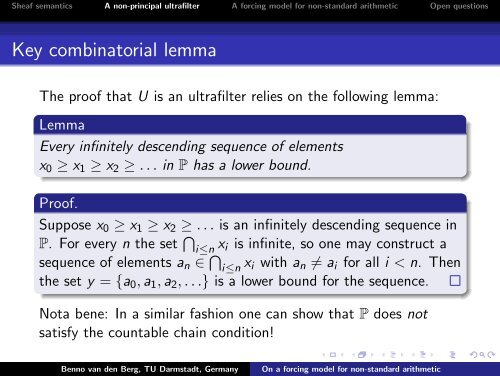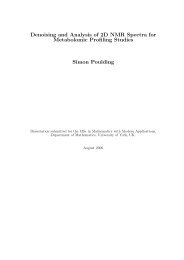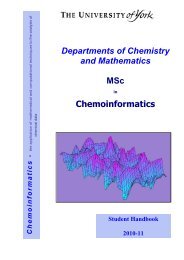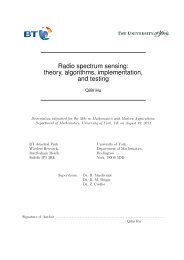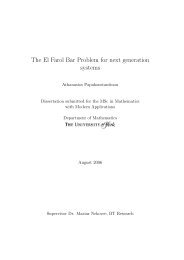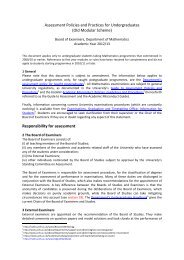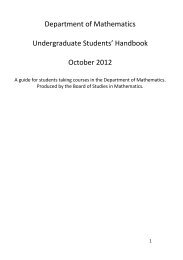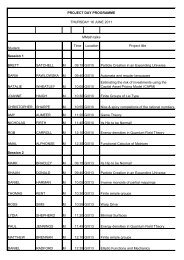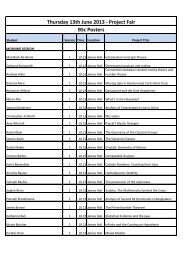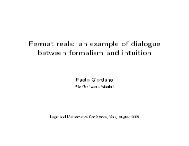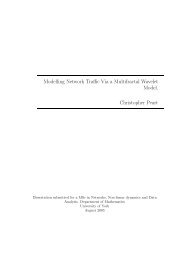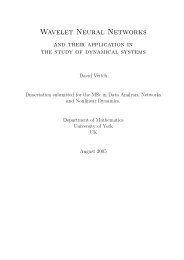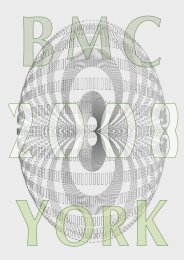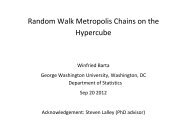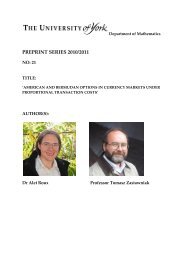On a forcing model for non-standard arithmetic
On a forcing model for non-standard arithmetic
On a forcing model for non-standard arithmetic
Create successful ePaper yourself
Turn your PDF publications into a flip-book with our unique Google optimized e-Paper software.
Sheaf semantics A <strong>non</strong>-principal ultrafilter A <strong><strong>for</strong>cing</strong> <strong>model</strong> <strong>for</strong> <strong>non</strong>-<strong>standard</strong> <strong>arithmetic</strong> Open questions<br />
Key combinatorial lemma<br />
The proof that U is an ultrafilter relies on the following lemma:<br />
Lemma<br />
Every infinitely descending sequence of elements<br />
x0 ≥ x1 ≥ x2 ≥ . . . in P has a lower bound.<br />
Proof.<br />
Suppose x0 ≥ x1 ≥ x2 ≥ . . . is an infinitely descending sequence in<br />
P. For every n the set <br />
i≤n xi is infinite, so one may construct a<br />
sequence of elements an ∈ <br />
i≤n xi with an = ai <strong>for</strong> all i < n. Then<br />
the set y = {a0, a1, a2, . . .} is a lower bound <strong>for</strong> the sequence.<br />
Nota bene: In a similar fashion one can show that P does not<br />
satisfy the countable chain condition!<br />
Benno van den Berg, TU Darmstadt, Germany <strong>On</strong> a <strong><strong>for</strong>cing</strong> <strong>model</strong> <strong>for</strong> <strong>non</strong>-<strong>standard</strong> <strong>arithmetic</strong>


